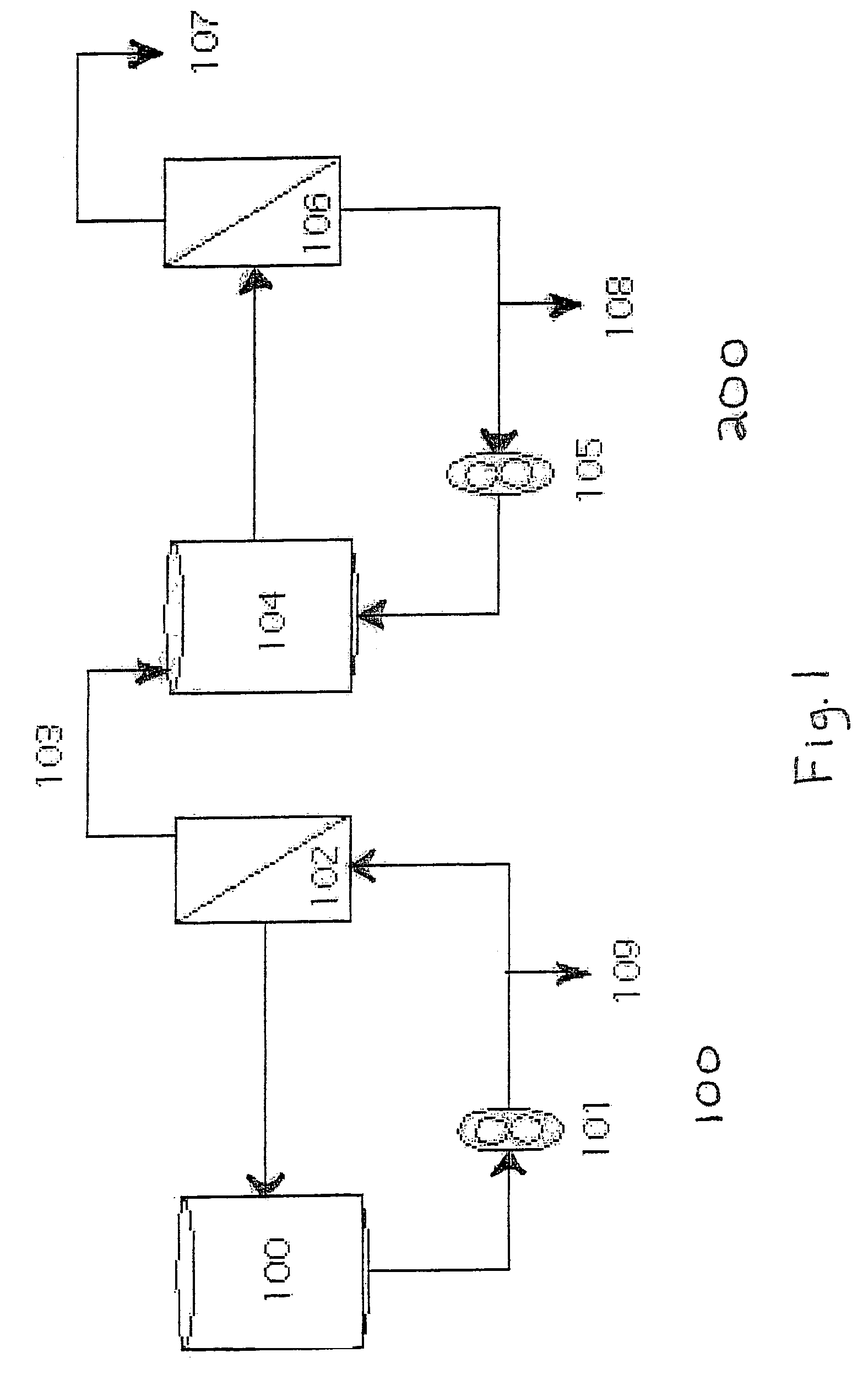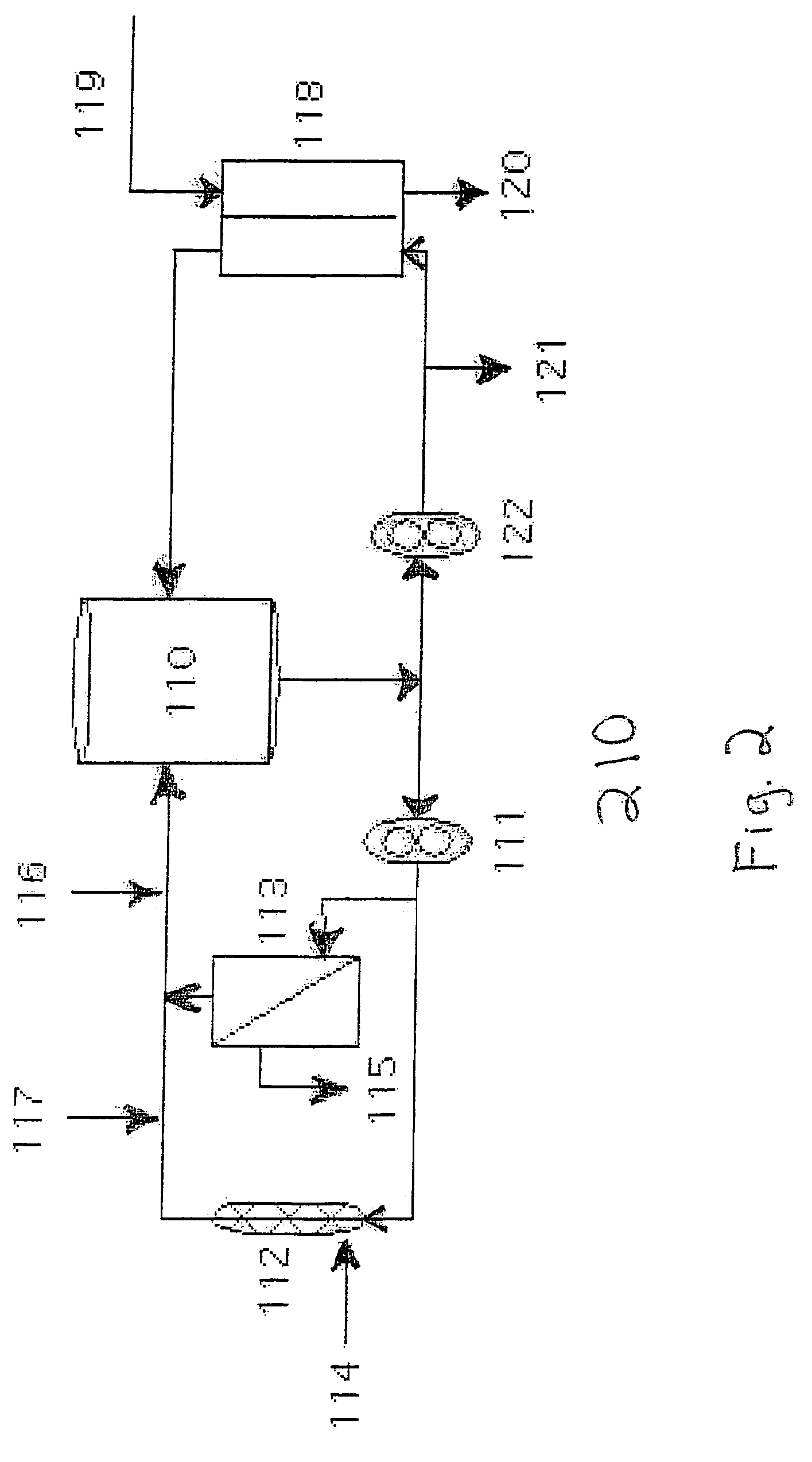Method of forming a polymerized hemoglobin solution from stabilized hemoglobin
a technology of stabilized hemoglobin and polymerized hemoglobin, which is applied in the field of polymerized hemoglobin solution from stabilized hemoglobin, can solve the problems of unsustainable and even cross-linked tetrameric hemoglobin being harmful to humans, affecting the quality of blood-supplied products, and consuming a lot of starting materials, so as to improve the efficiency of producing a blood-supply and reduce the cost of production.
- Summary
- Abstract
- Description
- Claims
- Application Information
AI Technical Summary
Benefits of technology
Problems solved by technology
Method used
Image
Examples
example 1
Production of Stabilized Hemoglobin Solution (HBOC-F)
[0035]Stabilized hemoglobin solution was obtained as described in U.S. Pat. No. 6,610,832 B1, which describes the production of hemoglobin blood substitute. As described in U.S. Pat. No. 6,610,832 B1, bovine hemoglobin was obtained and polymerized to form polymerized Hb blood-substitute.
[0036]FIG. 1 shows fractionation loop 100 and concentration loop 200. The polymerized Hb blood-substitute was diluted to a concentration of 5.0 g / dl by adding filtered, deoxygenated low pH buffer (27 mM sodium lactate, 12 mM NAC, 115 mM NaCl, 4 mM KCl, and 1.36 mM CaCl2 in water for injection (WFI), (pH 5.0)) to the polymerization reactor 101. The diluted blood substitute was then diafiltered in fractionation loop 100. Fractionation loop 100 comprises recirculation vessel 100, 100 kD fractionation filter 102, permeate line 103, port 109, and pump 101. The diluted blood substitute was recirculated over 102 against a filtered deoxygenated buffer cont...
example 2
Large-Scale Polymerization of Stabilized Hemoglobin
[0038]The manufacture of HBOC-302 was performed HBOC-F obtained as described above. HBOC-F was collected as a dilute solution and concentrated as described above to 9-11 g / dL. HBOC-F was maintained in the deoxygenated form by the use of nitrogen purged vessels and the use of Hoechst-Celanese phase transfer membranes in which nitrogen is passed on one side of the membrane and hemoglobin solution is recirculated on the other side of the membrane. The process was carried out in HBOC-302 process loop 210. Loop 210 (FIG. 2) comprises recirculation vessel 110, pump 111, 30 kD concentration filter (Millipore, Bedford, Mass.) 113, permeate line 115, static mixer 112, ports 114, 116, and 117, deoxygenation cartridge (Hoechst-Celanese, Charlotte, N.C.) 118, inlet 119, outlet 120, recovery port 121, and pump 122.
Reactor Preparation
[0039]The manufacturing process was initiated by adding deoxygenated water for injection (WFI) to 110. The WFI was...
PUM
 Login to View More
Login to View More Abstract
Description
Claims
Application Information
 Login to View More
Login to View More - R&D
- Intellectual Property
- Life Sciences
- Materials
- Tech Scout
- Unparalleled Data Quality
- Higher Quality Content
- 60% Fewer Hallucinations
Browse by: Latest US Patents, China's latest patents, Technical Efficacy Thesaurus, Application Domain, Technology Topic, Popular Technical Reports.
© 2025 PatSnap. All rights reserved.Legal|Privacy policy|Modern Slavery Act Transparency Statement|Sitemap|About US| Contact US: help@patsnap.com


